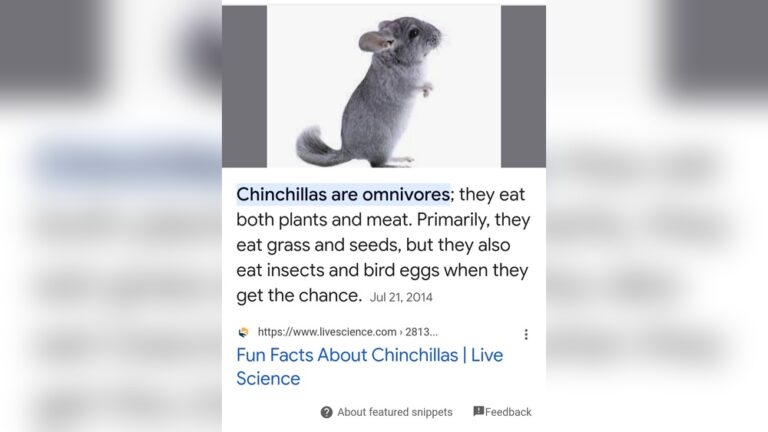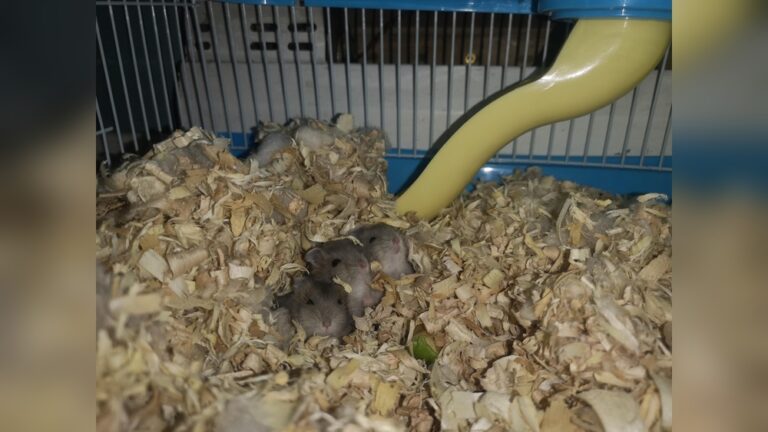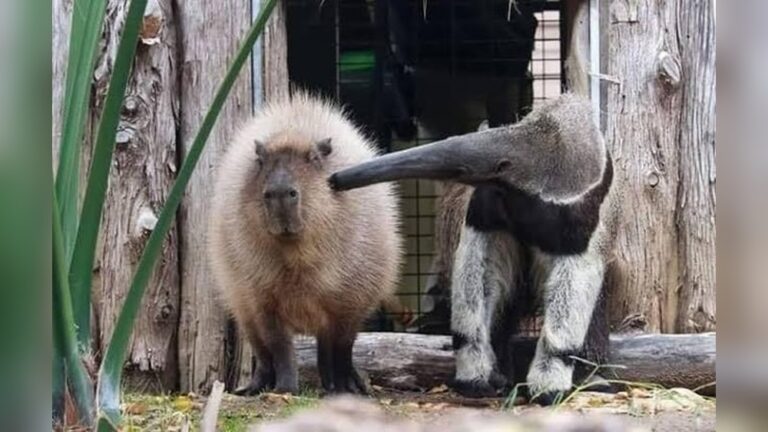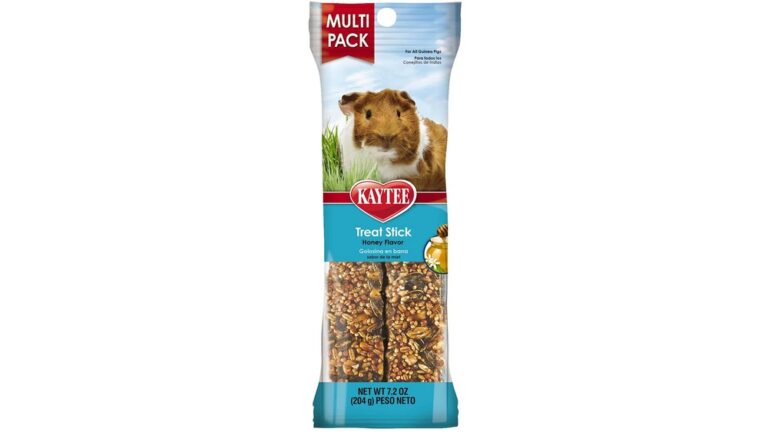How To Make My Chinchilla Happy: Ultimate Care Tips Revealed
Your chinchilla’s happiness matters, and you want to make sure your furry friend feels loved and comfortable every day. But how do you know what really makes your chinchilla happy?
It’s not just about food or toys—there are simple, effective ways to create a joyful home for your pet. Keep reading, because you’re about to discover easy tips that will transform your chinchilla’s mood and strengthen the bond between you two.
Ready to see your chinchilla thrive? Let’s dive in.

Credit: www.youtube.com
Creating A Comfortable Habitat
Creating a comfortable habitat is key to keeping your chinchilla happy and healthy. Their environment must meet their specific needs. This helps reduce stress and encourages natural behavior. A good habitat offers space, safety, and comfort. It also supports their active lifestyle and delicate health.
Choosing The Right Cage
Select a cage that is large and tall. Chinchillas love to jump and climb. Wire cages with solid floors work best. Avoid plastic cages that can trap heat. Make sure the bars are close together to prevent escapes. The cage should have multiple levels for exercise. Choose one with easy access for cleaning and feeding.
Ideal Cage Setup
Line the cage floor with dust-free bedding. Avoid cedar or pine wood shavings. Add hiding spots like small houses or tunnels. Provide chew toys made from safe wood or pumice. Place a dust bath in the cage for regular grooming. Add shelves or ramps for climbing. Keep food and water dishes clean and accessible.
Temperature And Lighting
Maintain a cool room temperature between 60-70°F (15-21°C). Chinchillas cannot handle heat well. Keep the cage away from direct sunlight. Avoid drafts and sudden temperature changes. Use natural light but limit exposure to bright lights. A quiet, calm space helps your chinchilla feel safe. Monitor the environment to prevent overheating or cold stress.

Credit: mazuri.com
Proper Nutrition And Diet
Proper nutrition is key to keeping your chinchilla happy and healthy. Their diet affects their energy, fur quality, and overall mood. Feeding the right foods helps avoid health problems. It also supports their natural digestive system.
Chinchillas need a diet high in fiber and low in fat. Fresh water must always be available. Knowing what foods to give and what to avoid is important. This section covers the best foods, treats to avoid, and water supply essentials.
Best Foods For Chinchillas
Hay is the main food for chinchillas. It provides fiber and helps wear down their teeth. Timothy hay is the best choice. You can also offer chinchilla pellets made for their dietary needs. These pellets contain balanced nutrients and fiber.
Fresh vegetables can be given sometimes. Small amounts of carrot, celery, or kale are good options. Avoid sugary or starchy vegetables. Stick to small portions to prevent stomach issues.
Treats To Avoid
Chinchillas have sensitive stomachs. Avoid sugary treats, chocolate, and nuts. These can cause serious health problems. Fruits are also risky because of their sugar content. Do not feed dairy or meat products. Stick to safe treats like dried rose hips or plain oats in moderation.
Water Supply Essentials
Fresh water must always be available to your chinchilla. Use a water bottle with a metal spout. Change the water daily to keep it clean and fresh. Avoid water bowls because chinchillas may spill or contaminate them. Clean the bottle regularly to prevent bacteria build-up.
Daily Exercise And Play
Daily exercise and play are key to keeping your chinchilla happy and healthy. These small animals have lots of energy and need chances to move every day. Playtime helps them stay fit and stops boredom. It also strengthens your bond with your pet. Regular activity supports their natural curiosity and joy.
Safe Toys For Stimulation
Choose toys made from safe, chewable materials like wood or pumice stone. Avoid plastic or toxic substances. Toys such as wooden blocks, tunnels, and chew sticks keep chinchillas busy. They help their teeth stay healthy and strong. Rotate toys often to keep your pet interested.
Encouraging Activity
Create a play area with obstacles and climbing spots. Use shelves, ramps, and branches to mimic their natural habitat. Place treats around the space to motivate your chinchilla to explore. Let them jump, run, and climb freely. This encourages natural movement and mental stimulation.
Supervised Playtime Tips
Always watch your chinchilla during playtime outside the cage. Ensure the room is safe and free of wires or harmful objects. Close windows and doors to prevent escapes. Limit play sessions to 20-30 minutes to avoid stress. Stay calm and gentle to build trust during play.
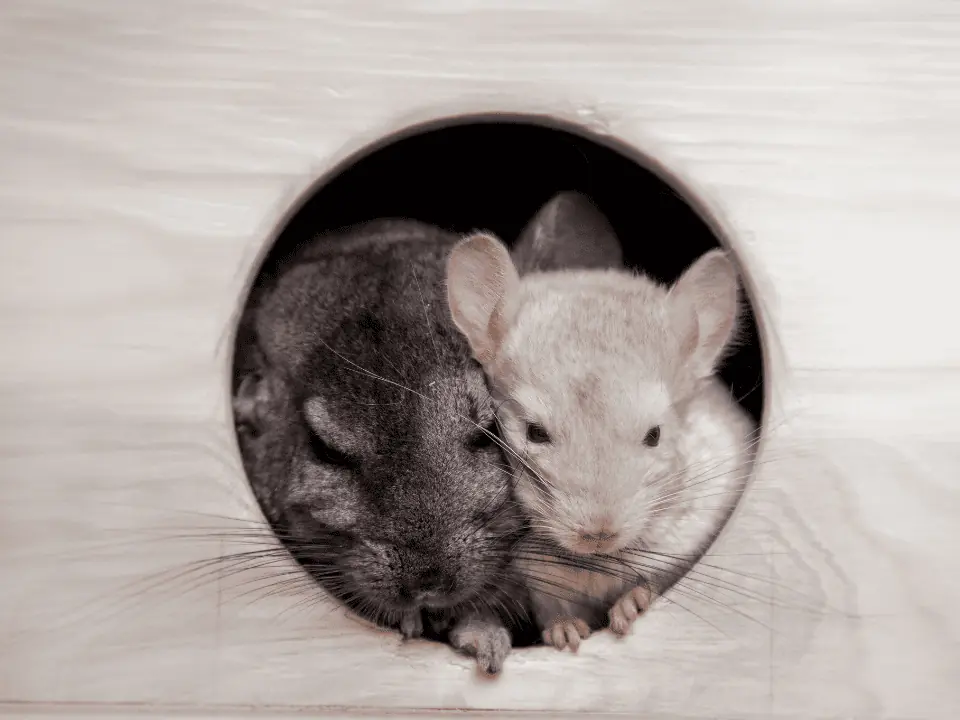
Credit: www.burgesspetcare.com
Grooming And Hygiene
Grooming and hygiene are key to keeping your chinchilla happy. Clean fur and a tidy cage help your pet stay healthy. These tasks also create a strong bond between you and your chinchilla. Proper care prevents skin problems and keeps your pet active.
Dust Baths Benefits
Chinchillas need dust baths to clean their fur. Water baths can harm their dense coat. Dust baths remove oils and dirt effectively. Use special chinchilla dust, not regular sand. Let your chinchilla roll in dust for 10 to 15 minutes. This keeps their fur soft and fresh.
Cleaning The Cage
Clean the cage at least once a week. Remove old bedding and waste daily. Use pet-safe cleaners to avoid harmful chemicals. A clean cage prevents bad smells and infections. Add fresh bedding and toys after cleaning. Your chinchilla will enjoy a fresh space.
Handling Fur And Nails
Brush your chinchilla gently to remove loose fur. This helps prevent fur matting and hairballs. Trim nails carefully once a month or as needed. Use small nail clippers made for pets. Avoid cutting too close to the skin. Proper grooming keeps your chinchilla comfortable and healthy.
Social Interaction
Social interaction plays a big role in making your chinchilla happy. These small animals are very social and enjoy company. They need attention and gentle care from their owners. Spending time with your chinchilla helps build trust and friendship. It keeps them active and reduces stress. Understanding how to interact can improve your pet’s life.
Bonding With Your Chinchilla
Start bonding by talking softly and moving slowly near your chinchilla. Let them get used to your voice and scent. Offer treats by hand to build trust. Pet them gently once they seem calm. Daily short sessions help your chinchilla feel safe. Patience is key; some chinchillas take time to warm up.
Introducing New Pets
Introduce new pets carefully and slowly. Keep them in separate cages at first. Let your chinchilla see and smell the new pet without touching. Watch for signs of stress or fear. Gradually allow short supervised meetings. Do not force interaction; let them adjust naturally. This helps avoid fights and keeps both pets calm.
Reading Chinchilla Behavior
Learn to read your chinchilla’s body language. A happy chinchilla will be curious and active. Ears up and bright eyes show interest. If your chinchilla hides or stays still, it may be scared. Teeth grinding softly means contentment, but loud grinding shows pain. Understanding behavior helps you respond to their needs quickly.
Health Care Essentials
Keeping your chinchilla healthy is key to its happiness. Good health care helps your pet live longer and enjoy life. Regular checks and proper care prevent many problems. Learn the basics of chinchilla health care to keep your pet safe and active.
Common Health Issues
Chinchillas can face several health problems. Fur chewing is common and often caused by stress or boredom. Dental issues happen because their teeth grow constantly. Watch for red eyes or runny nose, signs of respiratory infections. Digestive problems appear if they eat wrong foods or too much. Early detection of these issues helps prevent serious illness.
When To Visit A Vet
Take your chinchilla to a vet at the first sign of sickness. Loss of appetite or weight is a warning. Unusual droppings or diarrhea need quick attention. If your pet becomes less active or hides often, it may be unwell. A vet can give the right treatment and advice. Regular vet visits keep your chinchilla in top shape.
Preventive Care Tips
Provide fresh water and a balanced diet daily. Avoid sugary or fatty treats to protect digestion. Keep the cage clean to reduce germs and infections. Give dust baths to keep fur healthy and dry. Offer safe chew toys to help dental health. Monitor your chinchilla’s behavior and health every day. Small steps make a big difference in your pet’s well-being.
How Smart Pets Lover Can Help You with How To Make My Chinchilla Happy
Turning Care into Learning: Practical Ways to Understand Your Chinchilla’s Happiness
When it comes to making your chinchilla happy, it’s more than just setting up a cozy habitat or ensuring the right diet—it’s about tuning in to their unique personality and needs. Observing how your furry friend interacts during daily exercise and play can reveal so much about their mood and preferences. For example, do they favor certain toys or times of day for activity? These insights help you tailor their environment and routine for maximum comfort and joy.
Grooming sessions offer another valuable chance to bond and learn. Watching your chinchilla’s reactions during brushing not only supports hygiene but also builds trust and emotional connection. Remember, a happy chinchilla often shows curiosity and engagement, so keep those social interactions gentle and consistent.
- Take notes on behavior changes during play and feeding times.
- Experiment with habitat adjustments based on what your chinchilla seems to enjoy.
- Use grooming moments to spot any health concerns early on.
At Smart Pets Lover, we believe every wag, purr, and chirp tells a story, and your chinchilla’s happiness is part of that narrative. If you ever need more tailored advice, reaching out to trusted local vets or pet care communities can be a great support—because informed, confident pet parents make the best companions.
Frequently Asked Questions
How Can I Create A Perfect Habitat For My Chinchilla?
Provide a spacious, well-ventilated cage with multiple levels. Use dust baths regularly and maintain a cool, dry environment.
What Diet Keeps My Chinchilla Happy And Healthy?
Feed high-quality hay, chinchilla pellets, and fresh water daily. Avoid sugary treats and provide occasional safe snacks like dried rose hips.
How Often Should I Handle My Chinchilla?
Handle your chinchilla gently for 10-15 minutes daily. This builds trust and keeps them socialized without causing stress.
What Toys Are Best For Chinchilla Enrichment?
Offer chew toys, wooden blocks, and exercise wheels. These stimulate natural behaviors and prevent boredom effectively.
Conclusion
Making your chinchilla happy takes care and love. Provide fresh food, clean water, and a cozy home. Give your pet enough time to play and rest. Watch your chinchilla’s behavior and adjust as needed. Small changes bring big smiles to your furry friend.
Enjoy the bond you build every day. Keep learning and caring for your chinchilla’s needs. Happiness comes from simple, kind actions you do daily.


